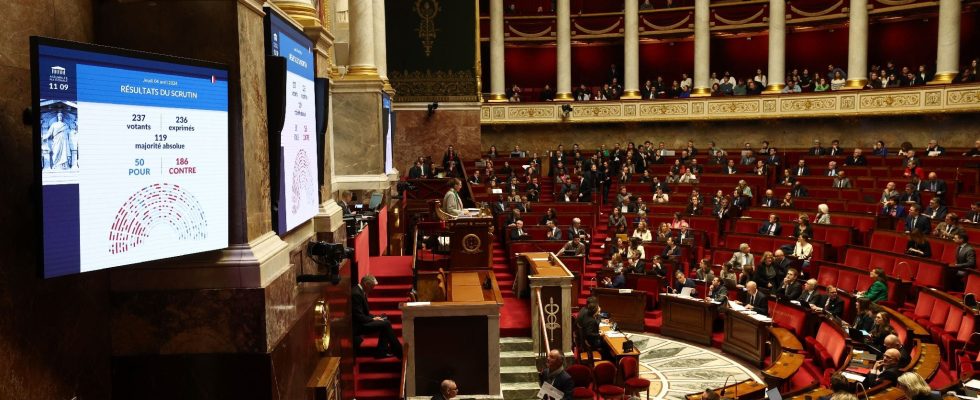It is difficult to imagine, when we doze off today in front of the debates broadcast on The Parliamentary Channel, that the walls of the National Assembly sheltered such adventures. Do we think, when lingering on the gilding which adorns the walls and ceilings of the Palais Bourbon, that they were, one day in December 1893, covered with powder, after the explosion of a bomb, launched by an anarchist, right in the heart of the Hemicycle ? Or that the marble floor was under water for a few days, in the middle of a hundred-year flood, while the general rapporteur of the Budget, a certain Paul Doumer, insisted on maintaining the examination of the Finance bill?
In Secret histories of the National Assemblypublished by Editions du Rocher*, Wally Bordas, parliamentary journalist at Figaro, looks back on these moments which marked the National Assembly. Page after page, we rediscover the history of the Palais Bourbon, and its sometimes dark hours. Like June 6, 1936, the day when Léon Blum, just elected President of the Council, had to endure an anti-Semitic attack from the ranks of the right. From the deputy Xavier Vallat, precisely, future general commissioner for Jewish questions under Vichy, who thus justifies the fact that his group will not vote for confidence: “There is another reason which prohibits me from voting for the ministry of Mr. Blum: “It is Mr. Blum himself. Your arrival in power, Mr. President of the Council, is undoubtedly historic. For the first time, this old Gallo-Roman country will be governed by a Jew.” The episode precedes by a few years, July 19, 1940, the day when a speech by Adolf Hitler broadcast by radio resonated in the hemicycle, while a large banner decorated with a Nazi swastika was unfurled.
July 30, 1946, a woman at Le Perchoir
But the Assembly is also July 30, 1946, some time after women entered Parliament and where, for the first time, Madeleine Braun, a former resistance fighter, chaired the debates in the National Assembly. The novelty was greeted with misogyny by the press of the time: “By a curious reversal of roles, it is a woman who will be responsible for preventing chatterboxes from speaking” writes France-Soirin its July 31 edition.
In the lower house, small stories rub shoulders with big ones. There is that of Felix Kir, the last deputy in a cassock, mayor of Dijon, who loved blackcurrant white wine so much, which he promoted wildly in the corridors of the Palais Bourbon, that he ended up giving it his name . That of the sword duel which opposed Gaston Defferre to René Ribière one morning in 1967. Or the unspeakable horrors about homosexuals uttered by the liberal right-wing deputy Michel Meylan, in the middle of discussion of the Civil Solidarity Pact (Pacs) bill. ) worn by Lionel Jospin.
The Assembly today is also the recent discussions on the text of pensions, the spats between the oppositions and the majority, the points of order, the cries of outrage like the big speeches, the mishandled microphones , the important texts and the thousand and one intrigues. A dive into the press archives, the stenographers’ notes, the secrets, the forgotten episodes like those which marked French politics. A little-known but fascinating story of a colorful lower chamber.
* Secret histories of the National Assembly. Bloodshed, intrigues and power gamesby Wally Bordas, Éditions du Rocher, 208 pages, 17.90 euros.
.
